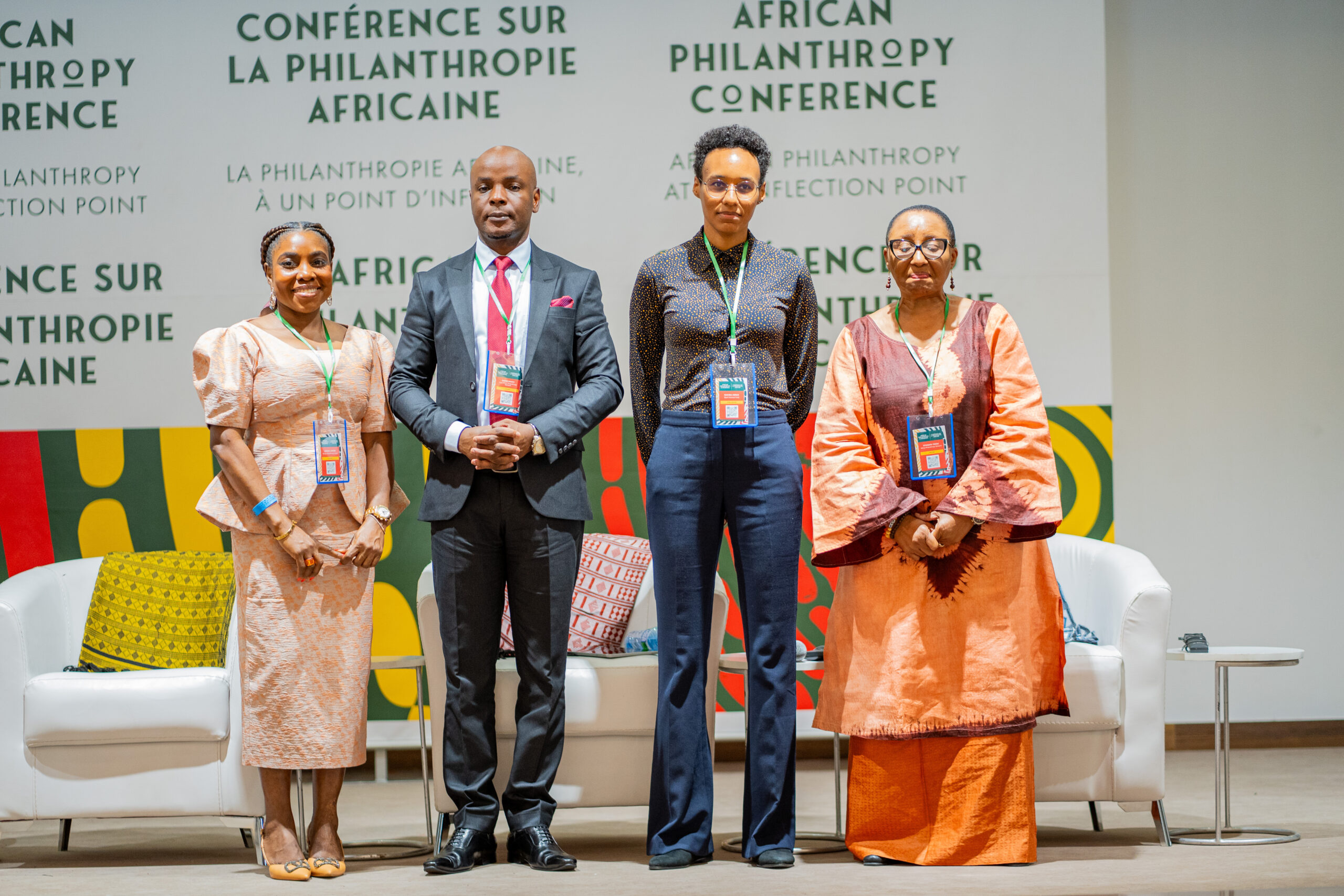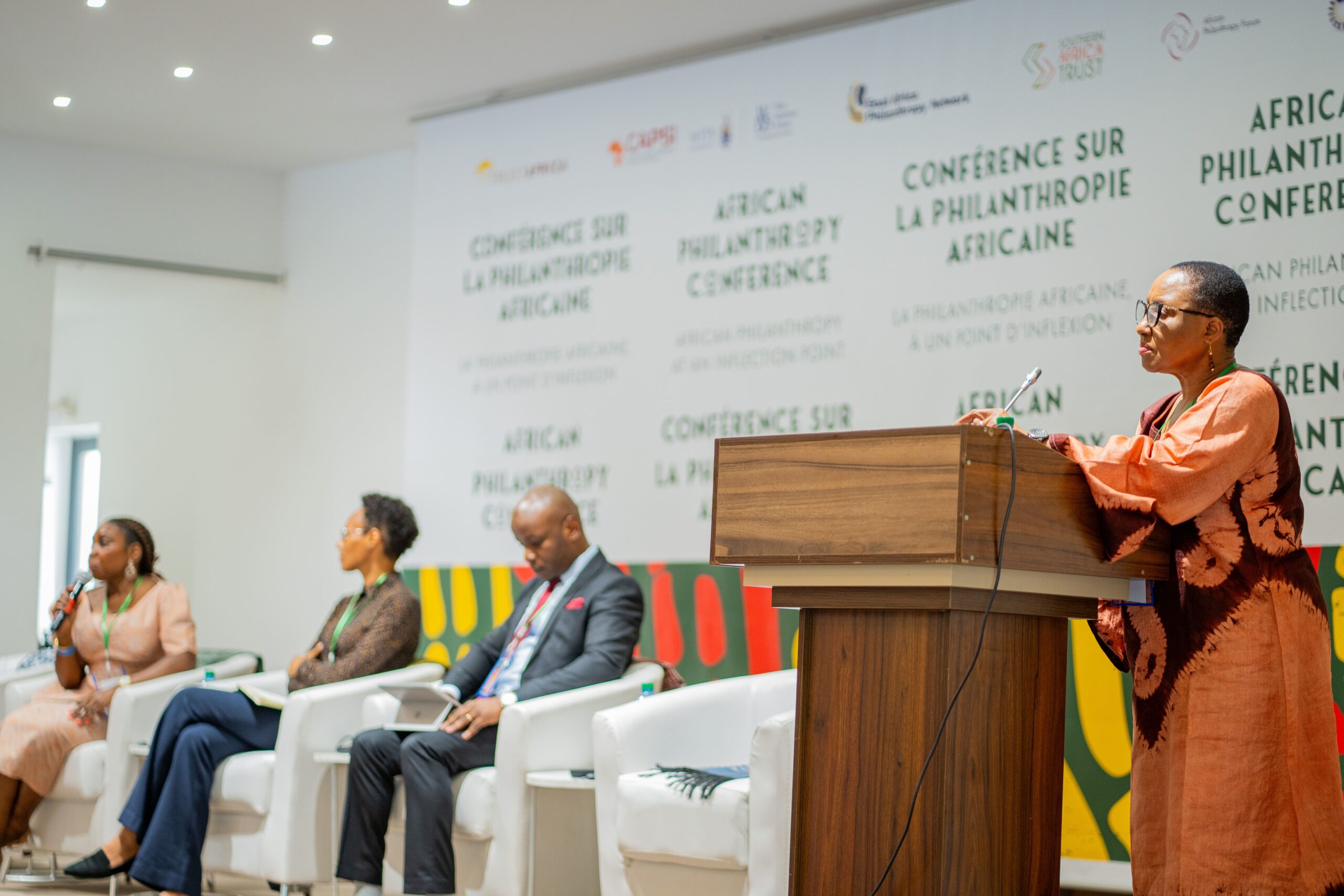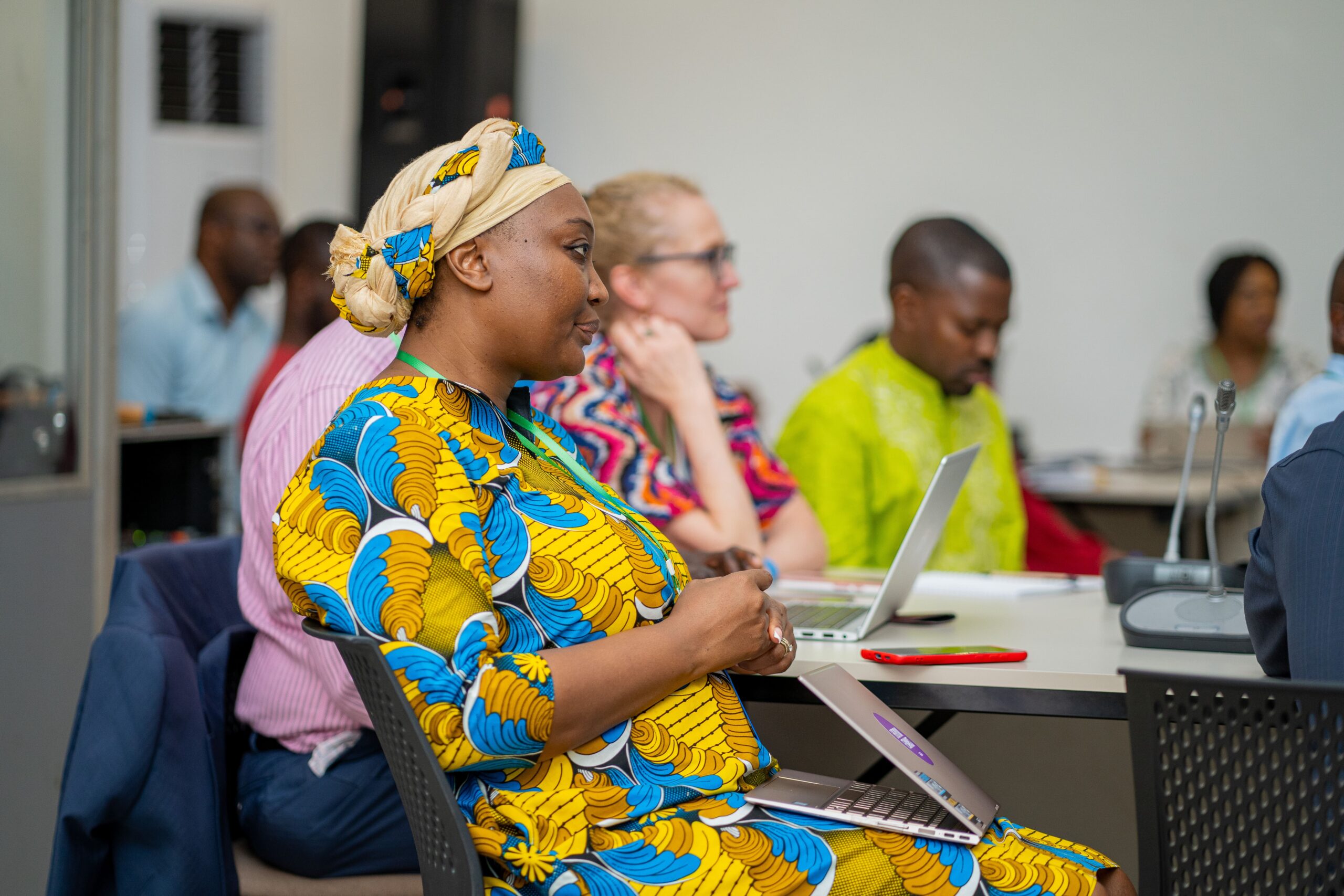One of the four objectives of the 4th African Philanthropy Conference is to “develop strategies, systems or platforms that support the collective and sustainable development of the philanthropic and social investment sector on the continent”. Within this setting, speakers at the conference prepared contributions that were contextual to both the objective and the theme of “African Philanthropy at an Inflection Point”.
Within the Practices dimension of the theme, participants and speakers interacted with numerous ideas and outcomes that explore progressive mechanisms to define and inform how African philanthropy is implemented.
Following an insightful keynote address by Mamadou Biteye, the conference hosted a plenary session that explored philanthropy practices that are transformative. Moderated by Executive Director of the Africa Philanthropy Network, Stigmata Tenga, the speakers in the session were:
- Hakima Abbas, Black Feminist Fund
- Evans Okinyi, East Africa Philanthropy Network
- Mosun Layode, African Philanthropy Forum
To align the understanding of the context of the session, Stigmata shared observations from her regional work with the Africa Philanthropy Network and highlighted how many of these correlate with the challenges set in the keynote address. She noted the issues around collaboration versus working in silos and emphasised the importance of establishing connections based on desired outcomes and opportunities to leverage resources. This session provided an opportunity to discuss the importance of collaboration across the sector, supporting community-led development and systemic approaches to practice, all aimed at creating a more significant and transformative impact.The panellists began their addresses by introducing their respective organisations’ work in philanthropy, which includes convening, research, grant-making, advocacy, and strengthening institutional capacity. This introduction established their expertise and set the tone for their contributions. In his opening remarks, Evans suggested that political, economic, socio-cultural, and technological factors were driving the shift in philanthropy practices. He also emphasised the need for collaborative philanthropy, which offers more efficient decision-making, enhanced transparency, and greater engagement both within organisations and across the sector.
Hakima followed, using the meaning of the word ‘inflection’ to reflect on how the sector operates during multiple global and societal crises, emphasising the need for transformative and sustainable solutions. She challenged the role of African philanthropy to shift towards creating a difference by establishing rules that support African liberation. This shift requires bold action and a willingness to embrace alternative leadership, especially through social movements.
“The liberated future that we’re looking for will be led by the most oppressed. It will be led by rural women. It will be led by impoverished women and gender-expansive people.” Hakima Abbas
Mosun used the example of partners collaborating to organise the African Philanthropy Conference and other cases observed within the African Philanthropy Forum, to illustrate how collaboration provides a means to tell inclusive stories and break down silos.
“Where I’m from in Nigeria, there’s a proverb which says, ‘The sky is big enough for birds to fly’. Collaboration can and should work and we do better when we come together, because together we’re able to do more.” Mosun Layode
She also reflected on points from the keynote address, and emphasised the importance of being deliberate in joining and fostering credible networks that enable sharing while supporting sustainable growth and identifying new mechanisms of giving and philanthropy.
Stigmata closed the discussion by reiterating the key messages shared by the panellists, which were building relationships and leveraging resources, taking risks and supporting in the long term, being co-creators and inclusive, and embracing humility and boldness to challenge power and work with collaborators. She summarised how transformative philanthropy in Africa aims to support African agency and liberation, while shifting from institutional stories to stories of collective impact and focusing on meeting the community’s needs.
“Transformative philanthropy requires taking risks, being bold, and trusting the leadership of marginalised populations. It also calls for long-term, core, and flexible funding to support social movements and community-led solutions.” Stigmata Tenga
Click to watch the recording of the plenary session on Transformative Philanthropy Practices



